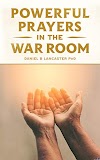Its is one thing to be taught by tutors and it is another thing to know how to personally how to study and and make good grades on ones own.
Teachers can guide students as they teach giving all that is needed to avoid bad outcomes during evaluations bit that is as far as ot goes.
ineffective studying habits by leaners can spell doom and this is one of the reasons many run around looking for help where none exists. Examination malpractices should be never an option where a student works smart ahead of the exams.
Hence it is important to prevent failure which can easily be done with proper preparation.
It is often being misunderstood by many that studying for a long time can bring about good success. But research had proven to the contrary that many A- grade students actually spend less time studying than their peers do—they just study more effectively.
Effective studying is the key, you want to study hard, then study smart.
Teachers can help all students learn to make more effective use of the time they spend studying by sharing research-proven techniques and some of these are outlined and explain briefly here for our benefits.1
STUDY LESS, WITH GREATER INTENSITY
In this era of social media and digital distractions, many students—and adults—do a lot of multitasking. But there is no such thing as successful multitasking, because much of the time spent is wasted on context switching, where the brain has to restart and refocus. You can't just be a Jack of all trade ,mastering nothing. Focusing on one task brings more outcome than having a divided attention.
Consider the formula “work accomplished = intensity of focus X time spent.” A student who is studying for WASSCE or IELTS for instance but also checks his texts and scrolls through WhatsApp ans Facebook has a low intensity of focus—say a 3. Though he spends 3 hours “studying,” his work accomplished is only a 9.
The millennial generation need to come to terms with this and really determine what they want for themselves.
One of the reasons they find onlike clases not interesting could be the fact that they try to juggle between socialising and learning at the same time while on their device.
On the other hand, a student who takes steps to focus solely on prepartion for the same exams has a high-intensity of focus—a 10. Though she/he spends only an hour studying, such accomplishes more than the distracted classmate did in 3 hours.
As much as we think we can do all things, we should also accept the fact that we must be able to apply wisdom to direct how we do all things.
Highly successful students have generally learned to avoid multitasking.
Instead of spending a lot of time doing low-intensity work with numerous distractions, these students work for shorter periods at higher intensity, without any distractions from email, social media, etc. This is what I would call study smart ,The focused type of studying is more effective and leads to greater achievement and gains.
Other Reads;
https://ayobeniji4jblogs.blogspot.com/2020/07/analogue-versus-digital-how-far-can-our.html
PROVEN AND EFFECTIVE LEARNING TECHNIQUES YOU NEED.
Time management is an issue which can not be over enohasied when it comes to having good success.
Many students use learning techniques that are time consuming and give the illusion of mastery. They become familiar with ideas and information in preparation for a test, but forget it a week later because their learning techniques never led to long-term learning. Lesrning shouldn't be seen as a flash in the pan-one time thing but a process.
There is this saying which goes that there is no good way to do a bad thing, same way there isn't a bad way to do the good thing. What has to he done well need to be done rightly well.
Student should take note of some Ineffective drifting techniques include:
Studying for long periods of time
Studying a single subject for a long period of time and repeating phrases over and over to memorize them (known as massed practice)
Reviewing one topic repeatedly before moving onto another topic (blocked practice)
Reading and rereading a text ( more of wrought memorisation which can only help in the short time bit never effectively on the long time when it comes to learning being a part of one to positively modifies ones life)
Highlighting or underlining important concepts in a text and then reviewing
Reviewing notes
5 HIGH-INTENSITY AND SMART STUDY HABITS
The generation that relies on short cuts have a way of cutting short their chances of good successes. There is no hard and fast rule to good success than to be determined enough to follow proven and tested good practises.
Good practises makes for perfection.
Researchers have found that the following techniques have increase sustainable learning and retention when incorporated in students’ daily study habits.
These techniques are difficult and require effort, and they slow down learning seemingly. Initially the learning gained seem to be smaller than with some ineffective practices. However, these techniques lead to long-term mastery. These show the difference between the hard studying learner ans the smart studying ones.
1. Pre-test:
Take a test of your knowledge on what you are about to read or study.When you practice answering questions, even incorrectly, before learning the content, there is a great chance of you getting your future learning enhanced by so doing . Research has shown that pre-testing improves post-test results more than spending the same amount of time studying.
Put yourself to the test, do personal evaluation when studying. Do mathematics practise when preparing for mathematics or any calculation based subject.
like I ways say to students, you don't read mathematics but you study it by practise, and practice makes for good perfection.
2. Spaced practice:
Spacing out study sessions—focusing on a topic for a short period on different days—has been shown to improve retention and recall more than massed practice. Although this can feel difficult initially due to an initial forgetting of knowledge—reacquiring that knowledge takes effort.
Make yourself flash cards that can be used for spaced practice and self-quizzing in an effective way. Try to create different piles when reviewing the flash cards.
Keep aside cards you are able to answer immediately to be review three days later; those answered with some difficulty should be reviewed two days later; and those that got answered incorrectly should be reviewed the next day.( Remember the Spelling Bee girl?)
3. Self-quizzing:
As exams are approaching or even just tests, we see lots of learners becoming agitated ans unsettled because our system which ol faces more emphasis on certificate hasn't really been of help much to the psychy of an average student.
There is no need to be afraid of test rather we prepare for such.
Testing has a negative connotation in this era of standardized testing, as earlier pointed out. but it is a form of active retrieval practice. You are encouraged to make test questions for yoirself as you learn a new concept, thinking about the types of questions you might ask on a quiz or test.
You should incorporate these quizzes into your study sessions, answering every question, even those you believe you are good at very well.
Do a classical simulation of what you might likely be expecting in the real exams or tests. Face your fear eve before it becomes real ans o ercome it.
4. Interleaving practice:
As a Student take time to do some blocked practice, studying a set of problems—such as multiplication problems—as a group until you feel mastery.may not be as effective as studying or to work on a set of problems that are related but not all of the same kind—for example, a set of math word problems that call for addition, subtraction, multiplication, or division.
The consecutive problems cannot be solved with the same strategy. This is more effective than doing one multiplication problem after another.( avoid such monotonous repetitions)
5. Paraphrasing and reflecting:
Many of us have read a few paragraphs in a textbook only to realize that we didn’t retain a single concept or key point presented in those paragraphs. This can be very frustrating ans energy decipating.
One the reason we sometimes.es see students soent hours reading just for comprehension. Reading hard as earlier stated isn't what we need most times so how can you combat this to overcome this?
Ordering on Konga just got easier;
http://www.konga.com/?k_id=ayobeniji
Ready of studying smart is what research has shown works best. When you utilize Intentional Learning Strategies which include relating what is being learned to prior (former) knowledge.you've acquired. This can help you in comprehending what you read better.
You attempt to think of how best you can explain that which you are reading to a 5-year-old, and reflecting on it by also asking questions about the content.
This is more or less going from the known to the unknown. Teachers do this alot when teaching a class. Picture yourself doing same when studying
The above are research based techniques which have been used and tested over time and have been found to be effective for studying. It is not enough to know all these as outlined and explained but very importantly we need to put these to practise.
Study to show yourself approved not just men bit also to yourself.
As a work man, there must be the readiness not to give room to shame but be ready to divide (decipher) the context of what you read when studying .
Adeniji A. B
@ayobeniji4j
Citadel Project
Other Reads;
https://ayobeniji4jblogs.blogspot.com/2020/07/chalenging-challenges-facing-you-as.html














0 Comments